Tanuja Akkannavar, Blogger
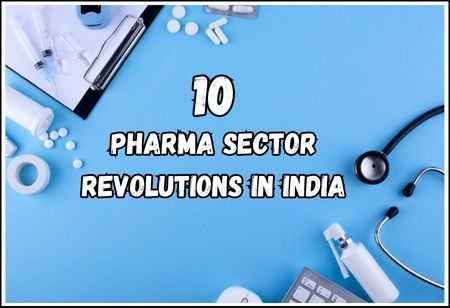
The pharmaceutical companies in India are under immense change. Until it was known for the generic pharmacy provided medicines, India is now the hotspot for pharmaceutical research, innovation, and manufacturing. With great infrastructure, an expert scientific population, and increased attention being paid to quality, India has built a potent pharma sector that plays an important role in global healthcare. India has often been called the "Pharmacy of the World," manufacturing over half the world's vaccines and providing a large share of generic medicines to countries such as the U.S.
Over recent years, the Indian pharmaceutical industry has witnessed rapid growth from 42 USD billion in 2021 to 65 billion in 2024, and is estimated to grow up to US$130 billion by 2030 and a huge US$450 billion by 2047. Such rapid growth is backed by strong exports, research and development, investments, and government policies. The industry now contributes 1.72% to India's GDP and is among the major areas attracting foreign investments.
This article will look at 10 major pharma revolutions in India happening today, that are helping the country move from being a medicine supplier to a global innovator in healthcare solutions.
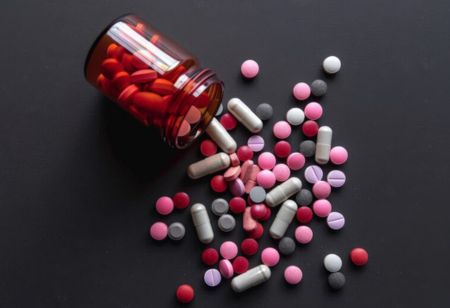 The Indian pharmaceutical scenario has turned into a global stage for generics with affordable pricing. The rationale behind treating them as affordable is their life-saving nature, especially in developing countries. India is exporting generic medicines for almost 20% of the world's requirement. Indian pharmaceutical exports stood at US$27.82 billion in FY24 and might witness a steep rise to 350 billion dollars by 2047. Indian medicines now reach more than 200 countries, including highly regulated ones such as the USA, the UK, Japan, and Australia. Gujarat ensures that a key portion of this success is shared with many pharmaceutical companies that produce best-in-class generic drugs adhering to global standards.
The Indian pharmaceutical scenario has turned into a global stage for generics with affordable pricing. The rationale behind treating them as affordable is their life-saving nature, especially in developing countries. India is exporting generic medicines for almost 20% of the world's requirement. Indian pharmaceutical exports stood at US$27.82 billion in FY24 and might witness a steep rise to 350 billion dollars by 2047. Indian medicines now reach more than 200 countries, including highly regulated ones such as the USA, the UK, Japan, and Australia. Gujarat ensures that a key portion of this success is shared with many pharmaceutical companies that produce best-in-class generic drugs adhering to global standards.

Indian pharmaceutical companies are increasingly investing in R&D to discover newer medicines and treatments. Some big names like Sun Pharma and Dr. Reddy's have financed R&D with annual expenditures of more than US$300 million and US$247 million, respectively, in FY23. This focus on research and development is enabling advancements in biosimilars, new chemical entities (NCEs), and vaccine development. The government incentive schemes, such as PRIP and National Biopharma Mission, help in fostering innovation through funding and industrial-academic partnerships. With this impetus, India is beginning to evolve as a formidable contender in global drug discovery and development.
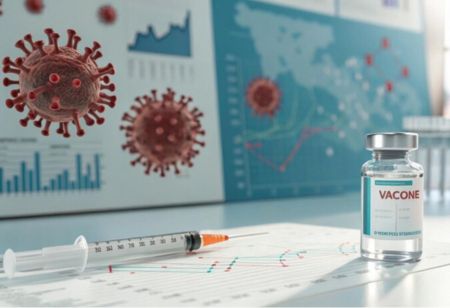
India is making an entrance into biosimilars by providing a cost-effective counterpart to expensive biologic drugs. As their patents expire, original biologics are being replaced in India by firms offering high-quality yet cost-effective alternatives, thereby possibly raising demand both within India and globally. The great prowess India has in the manufacture of vaccines further enhances the biopharma growth. It has thus been called the “Pharmacy of the world,” supplying vaccines for polio, pneumonia, yellow fever, etc. Companies such as Serum Institute and Bharat Biotech were instrumental during the COVID-19 crisis. Increasing cases of cancer, enhanced technologies, and generous government support are the driving forces creating the Indian future for biosimilars and vaccines.
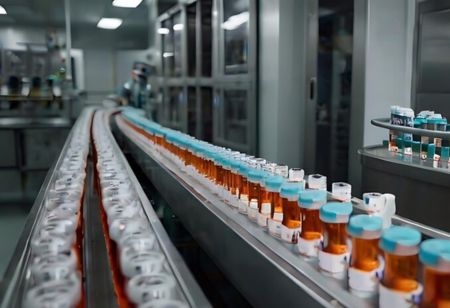
With over 10,500 units encompassing more than 2,000 WHO-GMP-approved plants, India is a strong manufacturing supply. India also has the highest number of USFDA-approved facilities outside the U.S., which testify to its quality on a global scale. Thanks to the Production Linked Incentive (PLI) Scheme, many projects related to key drug ingredients are currently underway, thus ensuring a reduction in import dependence. Performers who state Maharashtra and Gujarat receive top ranking in pharma manufacturing. With modern technology, skilled manpower, and dependable infrastructure, India is turning out to be a country that meets its domestic requirements while exporting medicines from India to the U.S. and Europe.

Big efforts are being taken by India to make healthcare affordable to its people. Under the Jan Aushadhi scheme, the government has opened more than 10,600 centres for the sale of generic medicines and surgical items at a lower price; it aims to have 25,000 centres by 2030. Due to digital healthcare in India under the Ayushman Bharat Digital Mission, more than 450 million health accounts have been created, providing access to telemedicine, online pharmacies, and digital health records. Also, government insurance schemes such as PM-JAY are assisting people in smaller towns to obtain the medicines that they require. These steps would help in making India an aspiring market for affordable healthcare.
Also Read: Blockchain for Secure Pharmaceutical Supply Chains - 2025 & Beyond
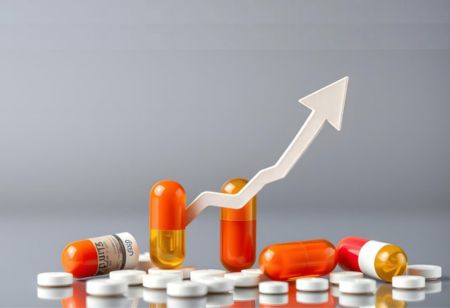
India’s pharma industry is attracting avid interest from foreign investors. From April 2000 to December 2024, approximately $23.3 billion came into the pharma sector in the form of FDI, thus warranting placing it among the top-10 FDI sectors. Being the largest vaccine producer and a leading player in generic drugs, India's pharmaceuticals export vaccines to over 150 countries and supply approximately 60% of vaccines in the world. It has a highly skilled labor force, modern production setup, and strong research capabilities, providing it competitive advantage. On the tech front, India is leading healthcare innovation as well with digital health initiatives like Ayushman Bharat Digital Mission (ABDM) and eSanjeevani.

The Indian government takes a few giant strides to make the pharma industry stronger and competitive. Under the Strengthening of Pharmaceutical Industry (SPI) scheme, a budget of Rs 500 crore has been set aside for the benefit of small and medium industries so they can improve their infrastructure for the labs and production units. This will keep quality at a higher level and help these Indian companies to compete on an international scale. Along with this, the Production Linked Incentive (PLI) scheme is encouraging the in-house production of crucial intermediates and API Manufacturing in India. Large investments are also being made in bulk drugs and medical device parks. With 100% FDI allowed in new pharma projects, India is fast becoming a hot investment destination for the global pharma industry.

India’s pharmaceutical companies are working more closely with global pharma giants to solve major healthcare problems. These partnerships help Indian companies develop new medicines, improve how drugs are made, and reach more international markets. By teaming up with global firms, Indian pharma gets access to the latest technology and knowledge, which boosts its ability to create better solutions. Many Indian companies now take part in clinical trials and drug development with international partners. These collaborations have led to important new medicines and treatments that are saving lives across the world.

A budget of Rs 3,000 crore has been allotted to establish bulk drug parks in India to reduce dependence on importing raw materials. These parks will function as production facilities for major ingredients of APIs and KSMs inside the country. Meanwhile, India's life sciences industry is progressively developing: With more than 6,700 biotech startups, many new biosimilar, diagnostics, and medical device innovations are being developed. Indian biosimilar manufacturers have released 98 biosimilar drugs so far. Because of the ever-improving infrastructure, availability of talent, and recently introduced schemes like PLI, India now manufactures advanced medical equipment and stands at the forefront of biotech innovation.
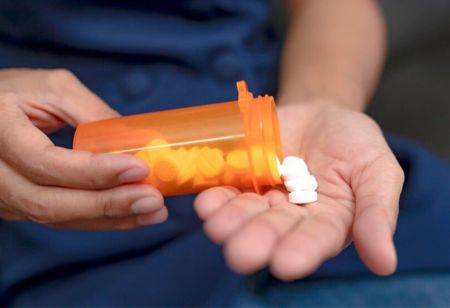
New technologies like personalized medicine, AI in healthcare India, nanotechnology, and three-dimensional printing are revolutionizing disease treatment. By transforming DNA into data with genome sequencing, scientists can better comprehend how diseases function. This knowledge helps researchers make drugs specifically for each patient based on their genes and health history. Personalized medicine is a landmark change for healthcare, shifting away from one-size-fits-all treatment to customized approaches. These targeted therapies hold the promise of being more effective and safer, thereby ensuring better therapeutic outcomes with fewer side effects. This is one step away from smart care for every patient.
Also Read: Personalized Medicine: Get Tailored Treatment Plans for You Now
In conclusion, India’s pharmaceutical industry is no longer just a provider of affordable generic medicines; it is now a global leader in innovation, research, and high-quality manufacturing. Backed by strong government support, rising foreign investment, advanced technologies, and robust infrastructure, India is shaping the future of healthcare both locally and globally. From biosimilars to personalized medicine and digital health to biotech startups, India is embracing every opportunity to improve lives. As the sector continues to grow rapidly, India is becoming a powerhouse of healthcare innovation.